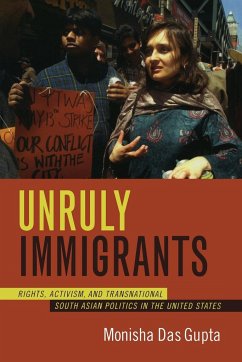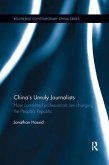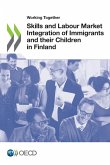In Unruly Immigrants, Monisha Das Gupta explores the innovative strategies that South Asian feminist, queer, and labor organizations in the United States have developed to assert claims to rights for immigrants without the privileges or security of citizenship. Since the 1980s many South Asian immigrants have found the India-centered "model minority" politics of previous generations inadequate to the task of redressing problems such as violence against women, homophobia, racism, and poverty. Thus they have devised new models of immigrant advocacy, seeking rights that are mobile rather than rooted in national membership, and advancing their claims as migrants rather than as citizens-to-be. Creating social justice organizations, they have inventively constructed a transnational complex of rights by drawing on local, national, and international laws to seek entitlements for their constituencies. Das Gupta offers an ethnography of seven South Asian organizations in the northeastern United States, looking at their development and politics as well as the conflicts that have emerged within the groups over questions of sexual, class, and political identities. She examines the ways that women's organizations have defined and responded to questions of domestic violence as they relate to women's immigration status; she describes the construction of a transnational South Asian queer identity and culture by people often marginalized by both mainstream South Asian and queer communities in the United States; and she draws attention to the efforts of labor groups who have sought economic justice for taxi drivers and domestic workers by confronting local policies that exploit cheap immigrant labor. Responding to the shortcomings of the state, their communities, and the larger social movements of which they are a part, these groups challenge the assumption that citizenship is the necessary basis of rights claims.
Hinweis: Dieser Artikel kann nur an eine deutsche Lieferadresse ausgeliefert werden.
Hinweis: Dieser Artikel kann nur an eine deutsche Lieferadresse ausgeliefert werden.








